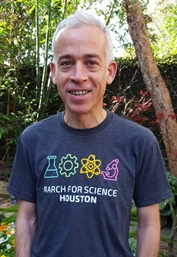检测到您当前使用浏览器版本过于老旧,会导致无法正常浏览网站;请您使用电脑里的其他浏览器如:360、QQ、搜狗浏览器的极速模式浏览,或者使用谷歌、火狐等浏览器。
 下载Firefox
下载Firefox
检测到您当前使用浏览器版本过于老旧,会导致无法正常浏览网站;请您使用电脑里的其他浏览器如:360、QQ、搜狗浏览器的极速模式浏览,或者使用谷歌、火狐等浏览器。
 下载Firefox
下载Firefox
必赢bwin线路检测中心定量生物学中心
学术报告
题 目: Viral decision making: Some recent findings and ongoing work
Professor of Biochemistry and Molecular Biology, Baylor College of Medicine
Professor of Physics and Microbiology (affiliate), University of Illinois at Urbana Champaign
地 点: ZOOM线上报告
Meeting ID: 910 9636 7823
Password:cqbcqb
主持人: 齐志 研究员
摘 要:
Viral dormancy, in which the infected cell is not killed but rather becomes the long-term residence of the parasite, is a hallmark of viruses across kingdoms, from bacteriophages to HIV. When and how viruses decide to opt for this lifestyle remains mysterious. Phage lambda, which serves as a paradigm for viral dormancy, is reported to count the number of coinfecting viruses and then use this value to assess the abundance of potential hosts and decide whether to become dormant. We use a single-cell measurement of viruses and their expressed genes, together with mathematical modeling, to illuminate how lambda performs this task. I will discuss some of our recent findings and ongoing work.
Professor Ido Golding received his Ph.D. in physics from Tel Aviv University (Israel) in 2001. Originally trained as a condensed matter theorist, he later spent five years learning the experimental arsenal of modern molecular biology as a Lewis Thomas Fellow at Princeton University. Prof. Golding joined the faculty of the Department of Physics at the University of Illinois at Urbana-Champaign in 2007. In 2019, he returned to the Department from Baylor College of Medicine, where he had been a Professor of Biochemistry and Molecular Biology. At Illinois, Golding is also an affiliate Professor of Microbiology and a member of the Center for the Physics of Living Cells.
